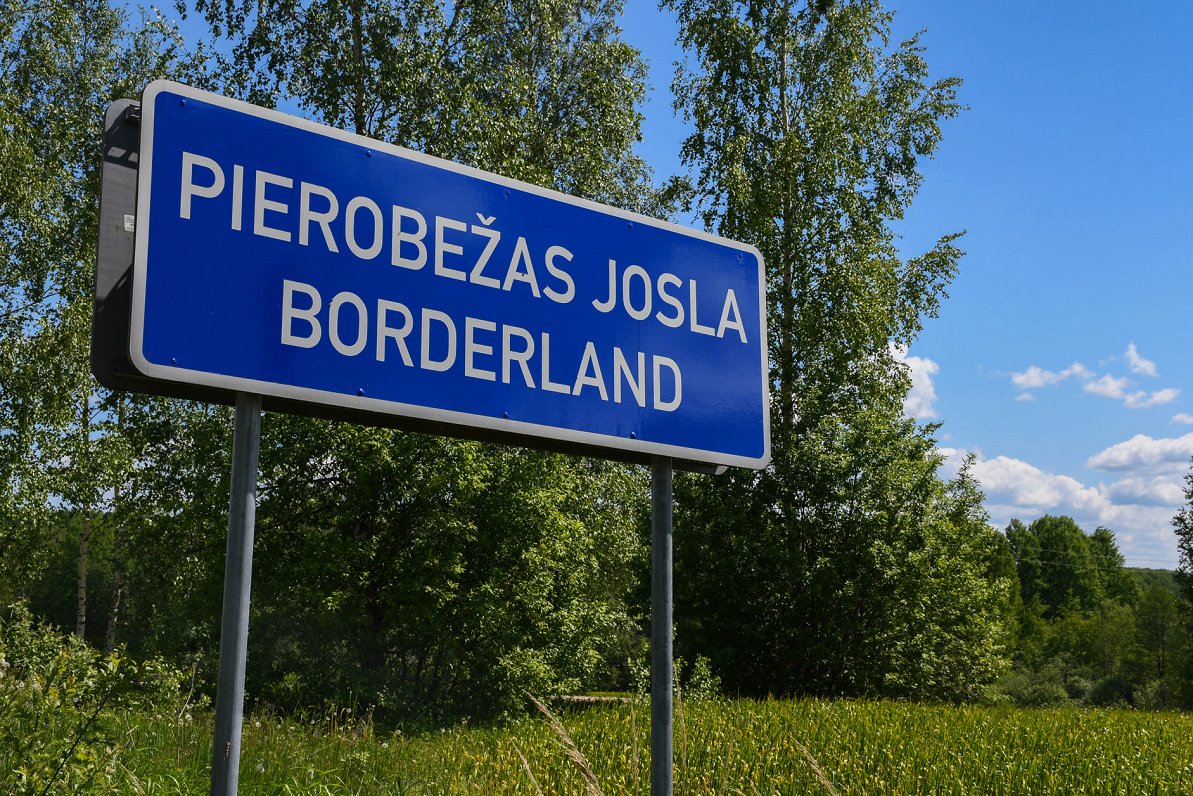According to the law, the government will be allowed to declare a reinforced regime for the operation of the border guarding system in order to ensure the integrity of the border and the prevention of State threats if a disproportionately large number of illegal border crossings or attempts is registered. It may be announced for a period of six months with the possibility of extending it.
By announcing such arrangements, the Cabinet will have the right to determine the following throughout the border area or part thereof:
- special arrangements for movement and assembly;
- special arrangements for the movement of vehicles or restrictions on that movement;
- the total or partial suspension of the operation of certain crossing points;
- special economic arrangements or restrictions on economic activity;
- special arrangements for accessibility of goods, medicines, energy resources, services, and other material-technical resources;
- the right not to apply public procurement regulation to goods or services needed to protect essential national security interests;
- the right of officials of the State administration to enter private property;
- limit the right of persons to be in certain places without authorization.
Meanwhile, amendments to the Law on the State Border Guard specify more clearly the right to use physical force in order to prevent illegal entry into the country.
Previously, changes related to the eastern border of the country were questioned by the association “I want to help refugees” (Gribu palīdzēt bēgļiem). According to its leader, Ieva Raubiško, the law changes may limit or even suspend the right of foreigners to asylum in Latvia. However, it is provided for by international conventions and European Union law, including in cases where the border has been crossed in a manner that is not in conformity with the law.
Council of Europe Human Rights Commissioner Dunja Mijatović had called on the Latvian parliament to reject the draft amendments on June 21, but her call was ignored.
#Latvia: MPs @Jekaba11 should reject amendments to the laws on the State Border & State Border Guard which would legalise current practices at the border with #Belarus that place persons in need of int'l protection at risk of #pushbacks & ill-treatment. 👇https://t.co/klubTarzxo
— Commissioner for Human Rights (@CommissionerHR) June 21, 2023
Belarus has regularly directed third-country migrant groups in the vicinity of the Lithuanian, Polish, and Latvian border since 2021. Belarus uses them as an element of hybrid war against the European Union.
4,045 people were prevented from crossing the border in 2021, and 5,286 people in 2022. This year, the figure is already above 3,500. For humanitarian reasons, a hundred people have been admitted into Latvia.
For the first time, the government announced the state of emergency in the border municipalities in August of 2021. The emergency was then extended several times. The state of emergency in Latvia's eastern border area is currently in force until August 11.




























